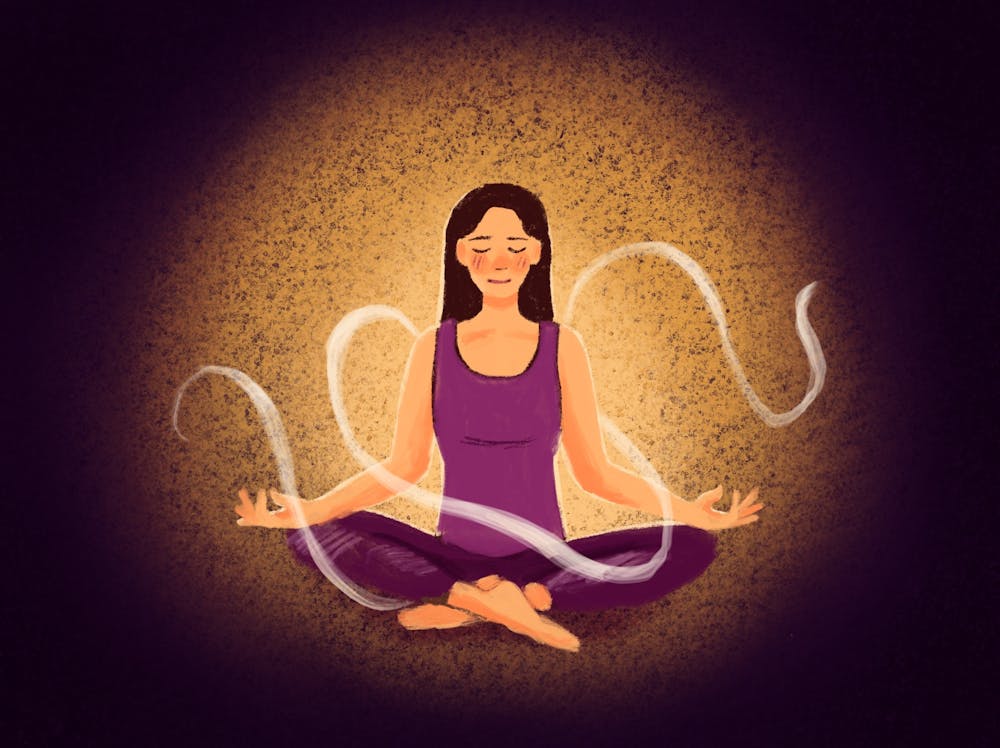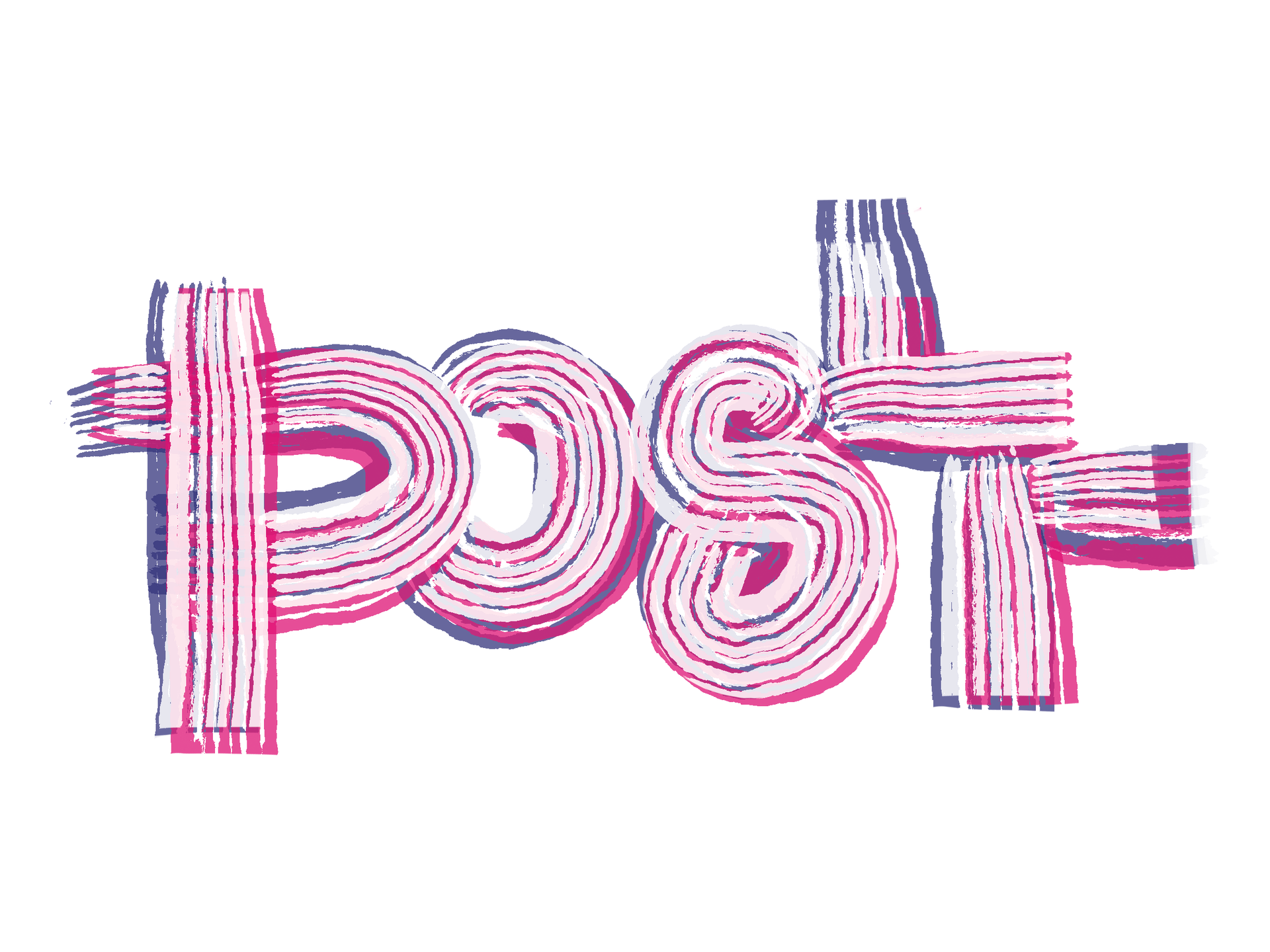Last semester I cracked my phone and dropped my Andrews pho just because I would not sit down alone in a dining hall. I’d just gotten out of a class that met from 6:30 to 8 p.m. (awful, I know) and I had a four-page Spanish essay to write before the clock struck midnight. There was no time for the typical quick-dinner-turned-hour-long-sit-down with my friends that day (besides, they all grumbled about eating so late) but I needed fuel, so off to Andrews I went.
I stood in line for 10 to 15 minutes, scrolling through Instagram with the performative reverence usually reserved for final paper comments or emergency advice threads in the “shenanigans” group chat. I would not look over my shoulder, I would not stare at the ground, I would not look bored or aimless, or worst of all, look alone.
At last I picked up my meal, grabbed some napkins and chopsticks, and poured myself a double-cardboard cup of Earl Gray tea. Then I wavered. My hands were awfully full: I could just sit down and eat at a nearby table and spare myself a lot of risk and trouble.
Nope! I would not. Instead I would carry my cardboard bowl and my cardboard cup, each filled with near-boiling water and covered either by a barely cinched-on piece of Reynold’s tinfoil or an extremely flimsy plastic lid, all the way through Andrews, across Pembroke Quad and under the MoChamp arch. Then I would fumble for my wallet inside my tote bag while trying to balance the pho and the tea on one arm; pull out my phone instead, notice the tea start to tip-tip-tip—reach out to steady it, promptly drop my phone onto the concrete, face-down, swear loudly, kneel down to assess the damage, and let the pho and the tea release their sizzling contents all over the pavement.
In what world was that mess preferable to 15 minutes of solitude at Andrews dining hall?
Brown’s world, I guess.
—
It wasn’t always like this. Sometimes I think back to the three or four years in middle and high school, pre-Covid, when on weekdays my parents were both in the office until relatively late, and my sister had school or piano or dance until the mid-afternoon at least. Once or twice a week, when I didn’t have my own track practices or orchestra rehearsals or so on, I’d come home after my last class to an empty apartment. I’d roll up the blinds, put on some Adele (cut me some slack, it was 2018), drop a slice of cinnamon bread in the toaster, and work or lounge in the light-filled living room in utter solitude.
After a seven-hour day of babbling to teachers in class and to friends for every second of our four-minute passing periods or at lunch, it was a good and necessary break. I never for a minute considered that I was doing something wrong, that my momentary solitude was “sad,” or that the peace and calm I felt was really abject loneliness suppressed.
—
What makes college different? I’m still more or less the same person who craved her solitary meals and moments in high school. But here at Brown, the only time I really feel the same certainty and relaxation that I did at home in New York is when I’m off campus. On long walks through India Point Park, doing errands in Wayland Square, or running on Blackstone Boulevard, I can be sure I won’t run into anyone I know. That means I don’t need to worry about being observed by others in my aloneness, or being subject to the judgments they might pass on it.
That kind of privacy from our peers isn’t available on campus, where pretty much every space is a public or shared one. Instead of a dining room, we have dining halls. Instead of a living room, we have lounges. This lack of personal space is especially acute for younger students, who are required to use the meal plan, who overwhelmingly live in doubles, and whose common spaces are shared by neighbors we didn’t choose and don’t necessarily like or trust.
But a lack of privacy wouldn’t matter if students (like me) didn’t participate in stigmatizing solitude. Why do we? I think it’s a consequence of another unique attribute of college—constant access, constant proximity. Take this example: Even in my dorm when my roommate is out and no one can see me, I can see, and hear, at any time of day—five in the morning to, well, five in the morning—all the posses of students as they round the bend from Pembroke Quad to Cushing Street. Even closer at hand are the 30-ish people living in my hall, just a door-knock away.
The implication is that fun—in the very specific sense of “direct human interaction with someone my age”—is very much available, and therefore there’s no excuse not to partake in it. Why would anyone be alone? Solitude can no longer be chalked up to geography or money or a busy schedule. In college, you can do everything in the world with another person. Eat meals, study, walk from class to class, watch Netflix, play music, sleep. So if you’re not doing those things with other people, there must be something wrong. You’ve failed. You’re different.
But God, what if I don’t want to be surrounded by other college students all day?
—
For the first few weeks of college, that thought never would have occurred to me. I was only a month or two removed from a senior year of high school spent almost entirely online. Quarantine starved us of other people. But let’s take a step back.
If you’re like me, during the pre-vaccine eternity of 2020 and part of 2021, time spent in the physical company of other human beings—especially your loved ones, but even fellow grocery-shoppers or dog-walkers or subway station buskers count too—was so intensely precious that you convinced yourself that you couldn’t possibly get enough of it. But there is a big difference between something being good, and it being good all of the time, or being the only thing that is good.
During quarantine, yes, being with friends was leagues better than basically anything else. But now that we’ve returned to something closer to normalcy, I would argue that the version of aloneness that’s available to us now is much preferable to the one we experienced in that earlier, monotonous era. A day at home in quarantine was boring, routine, and really, truly alienated from other people. All of our lives and spaces were steeped, to various extents, with uncertainty and fear; and it was this fear that compelled us to stay home. Not just for a day, but for months, over and over again; each day of solitude nestled between two more spent entirely alone.
A day alone here, now, is nothing like that. A day alone here involves nearly unrestricted freedom of movement, including into spaces that are filled with people, even if they’re people I don’t know. Isn’t it amazing to be anonymous in a busy space, to watch and to absorb without any pressure to play a part or prove belonging? Movement means variation, which is the antithesis of boredom—plus, while the hundredth day of quarantine was the hundredth day I’d spent alone, a day or an hour by myself here is nearly guaranteed to be preceded and followed by days and hours that are filled with people.
And the flipside of this issue of constant access means that aloneness is nearly always a choice and never a mandate. To choose to take time to yourself feels amazing, I promise you.
—
There’s no changing Brown’s highly public landscape now, and even if we could, I wouldn’t want us to. But what I do want us to do is to make the spaces that we share more comfortable for those who prefer to be by themselves. To respect each other’s choices, to overcome our judgments—they might lend us a moment of comparative pleasure but they will always come back to bite us—and to stop assuming that to be alone is to be lonely, too.
Loneliness most essentially implies a lack of control, a feeling of adriftness. To be lonely is to navigate the world with no anchor and no oars. But to choose to be alone is the opposite. It implies a deep sense of security, and the will and capability to make independent decisions, sometimes unpopular ones, out of a sensitivity toward what you need. And that, to me, is powerful.
Lily Seltz is a former staff writer for post- magazine and new writer for the The Herald. She studies English (Nonfiction) with a certificate in Migration Studies. She is always searching for a better bagel.





